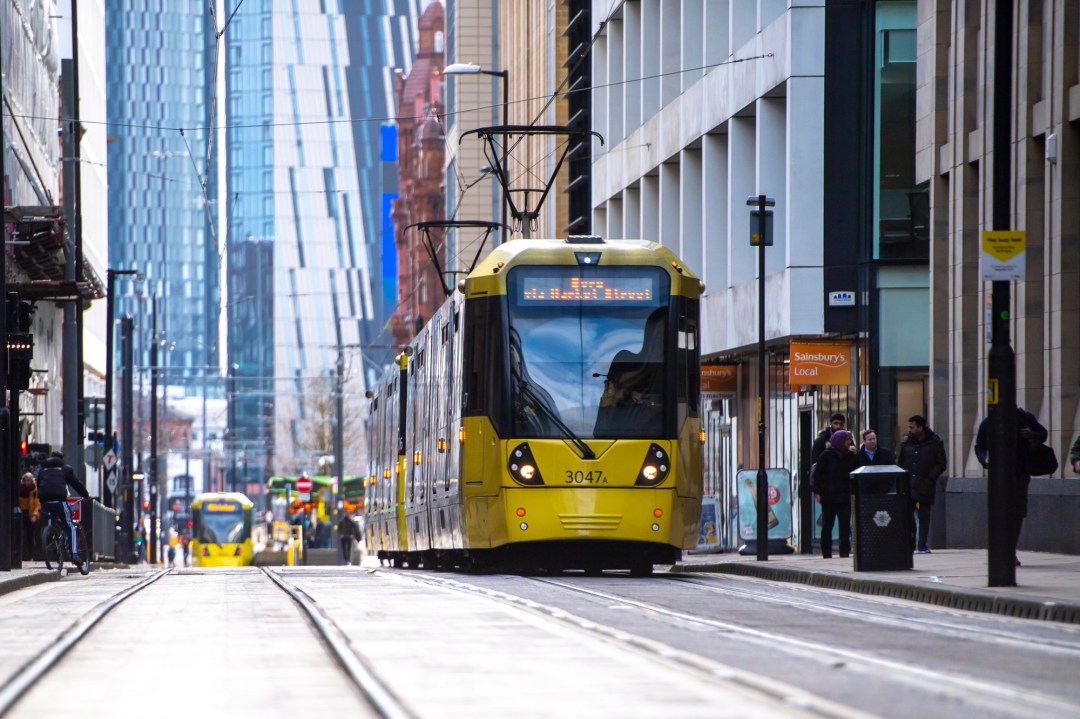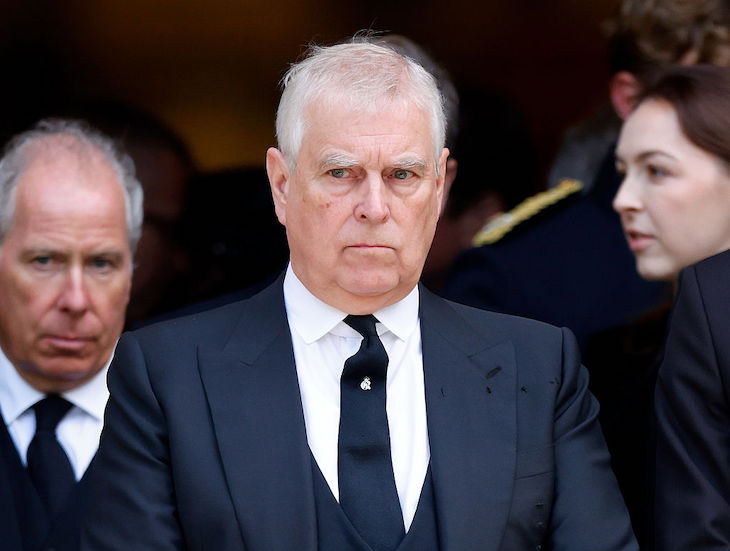So now we know how Labour intends to try to head-off the threat from Reform UK. It is going to fight them on the tram lines. Rachel Reeves will announce this morning £15 billion worth of new tram lines in the Midlands and the North as part of a £113 billion package of public investment. There will be £2.4 billion for trams in the West Midlands, £2.1 billion for a new tram system in Leeds, an extension of the Manchester tram system to Stockport and an embryonic tram system between Derby and Nottingham.
The idea of a ‘north-south divide’ is 25 years out of date. The gulf now lies more between the large, prominent cities of the North – Manchester, Leeds, Newcastle – and the much less-favoured hinterlands
‘A Britain that is better off cannot rely on a handful of places forging ahead of the rest of the country,’ she will apparently say. ‘The result of such thinking has been growth created in too few places, felt by too few people and wide gaps between regions, and between our cities and towns.’
Indeed. And there is little question that many regional cities are deficient in their public transport. The Blair government proposed extensive tram systems – 25 of them in all – but most were abandoned or curtailed after a National Audit Office report in 2004 criticised them for being poor value for money in many cases. Meanwhile, London got its vastly more expensive Crossrail.
Yet at the same time it is easy to wonder whether Reeves has really understood why Reform UK is advancing in ‘red wall’ areas. The idea of a ‘north-south divide’ is 25 years out of date. The gulf now lies more between the large, prominent cities of the North – Manchester, Leeds, Newcastle – and the much less-favoured hinterlands: the former industrial districts which failed to recover from rapid decline in the 1980s. While northern cities had proposed tram networks cancelled, they enjoyed oodles of public investment during the Blair years. City centres were transformed from depopulated wastelands to fashionable, pleasant places to live. They were showered with spanking new arts venues, posh apartment developments (where, unlike London, there was often no social housing element) and waterside bars and restaurants. It was a very different story for the Workingtons, the Hartlepools, the Huddersfields – places which were too small and not quite important enough to make it onto the radar on London-based ministers. Moreover, while Manchester and its like became politically aligned with Labour’s growing liberal metropolitanism, the more peripheral areas remained socially conservative. Labour saw the north in terms of Pride festivals and the like, not brass bands.
The widening gulf between the rich north and the poor north continued under the Conservatives. They, too, wanted to spend money on the big cities while ignoring the secondary places. HS2 was the prime example of this: George Osborne promoted the scheme as a boost for the north, forgetting that many of the places most in need of help lay 100 miles beyond the end of the two proposed legs, Manchester and Leeds. Other places south of those two cities, like Stoke-on-Trent, were originally intended to be bypassed.
Labour is making the same mistake again. It equates the fortunes of the Midlands and north with the economic health of the main cities. Meanwhile, it has scuppered the creation of jobs at coal mine in West Cumbria and destroyed what remains of our heavy industry through carbon levies and sky-high electricity prices. The political map of the north looks like being thoroughly redrawn at the next election, with islands of relatively well-off Labour seats sitting amid a sea of Reform UK territory. Labour’s big problem is that there are rather more places which lie beyond the end of the tram lines than those which will be served by Reeves’s new investment pot.









Comments